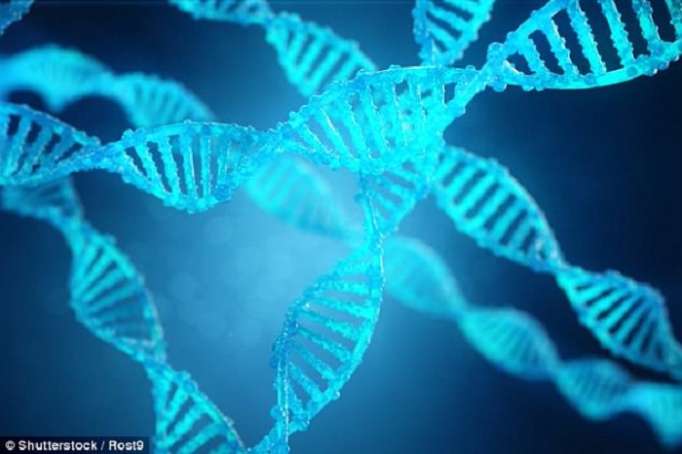A destructive blood disorder known as beta thalassaemia, which reduces the production of haemoglobin, could be cured using this therapy.
Haemoglobin carries the oxygen the body needs to its cells and without sufficient amounts those with the disease can be left with bone deformities, anaemia, slow growth, fatigue and shortness of breath.
Scientists at the biotech company Crispr hope that they can alter the body's code to stop the genetic mutation and restore healthy levels of haemoglobin.
The disease is the first to be treated using this method in Europe and experts have said that the trials hold promise.
Similar trials have taken place in China however they do not have the same restrictive regulations as Europe or the U.S.
Professor Robin Lovell-Badge, Group Leader at London's Francis Crick Institute, told the Sunday Telegraph: 'We will look back and think that this is the real beginning of gene therapy.'
This type of therapy has been used for the past 30 years as doctors dispense the missing DNA from damaged cells to increase their effectiveness.
But the work taking place at Crispr may be a more long-term solution which has also proven to be cheaper.
The therapy uses bacteria's natural defence mechanism which is carrying strands of deadly viruses so that they can recognise them.
If they come into contact with the virus they are able to release an enzyme in order to attack it and cut away at that form of code.
Scientists have taken this on board and created their own cutting mechanism which removes mutated areas of DNA.
However although this treatment will hopefully one day be used on humans the trials will take place outside of the human body.
Stem cells will be harvested from the body and grown in a laboratory before increasing their level of foetal haemoglobin.
This is the high level of protein which is present in babies however it is repressed when a human reaches adulthood.
The scientists plan to remove the gene which represses the growth of the protein and will allow the patient's bone marrow to again produce high levels of haemoglobin.
Darren Griffth, professor of genetics at the University of Kent, told the Sunday Telegraph: 'Everything I have seen suggests it's very safe and effective. I think the [trial] results will be positive.
'And then we will be able to say, this is where it all began.'
The University of Pennsylvania has begun enlisting for a trial which plans to use Crispr to treat patients with cancer.
The Daily Mail
More about: science
















































